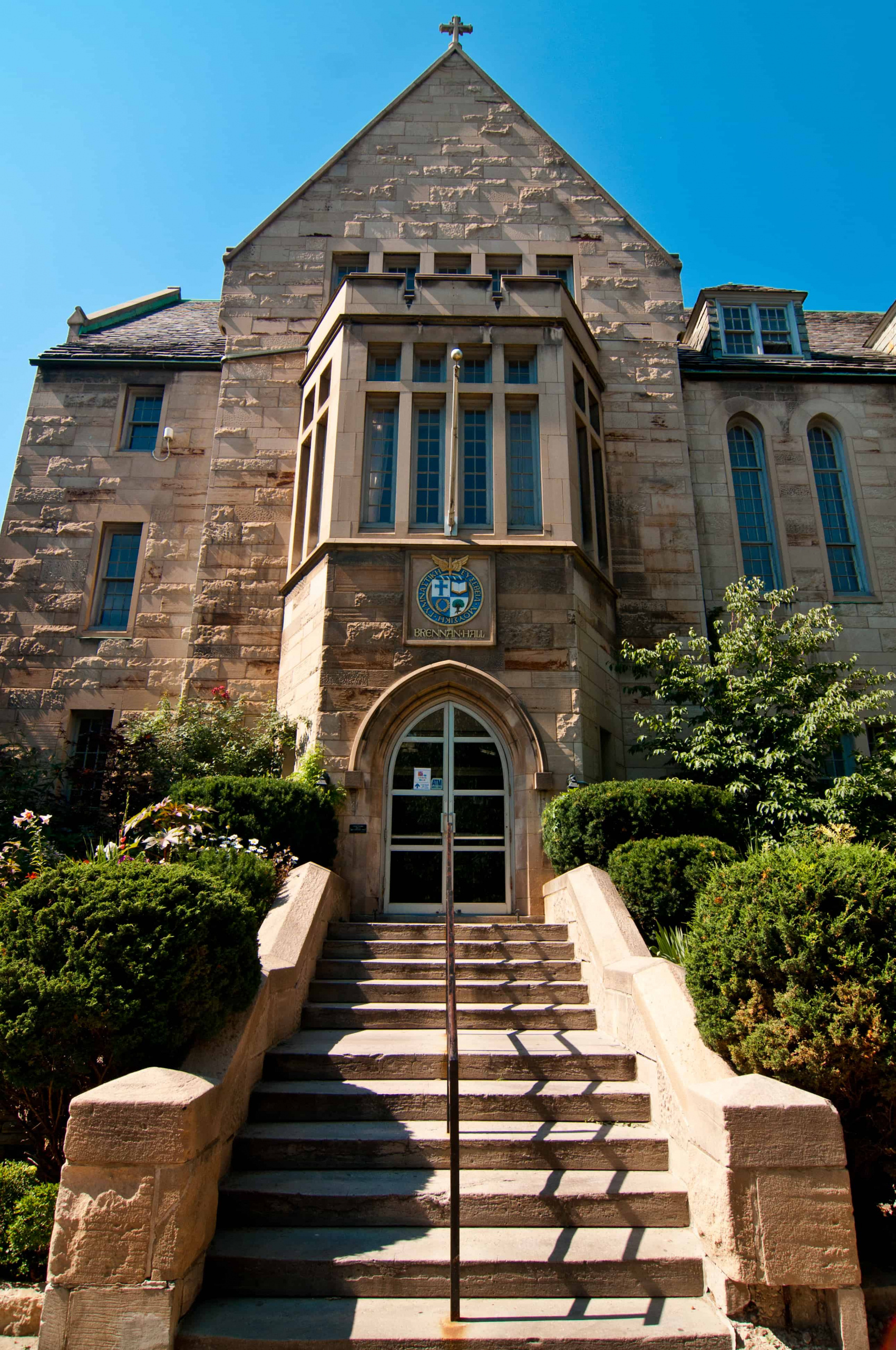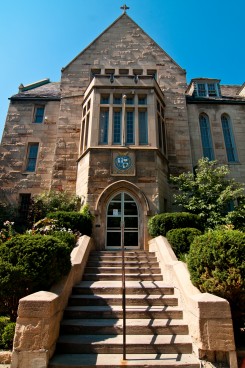The University of St. Michael’s College and the University of Toronto Faculty Association have concluded their first-ever negotiations, signing a new contract Friday and avoiding a strike that could have begun on Thanksgiving.
University administration negotiators walked away from the bargaining table on September 24, leaving the prospect of an imminent strike. Although undergraduates would not have been affected, members of the faculty of theology and librarians would have been in a position to either go on strike or be locked out by Monday.
According to Michael Attridge, unit chair for the University of Toronto Faculty Association and associate theology professor at St. Michael’s College, grievances included collegial and shared governance, tenure and permanent status, and academic freedom.
Friday’s agreement was rapidly approved, first by the executives of the U of T Faculty Association, then at 4.00 pm by members of the bargaining unit. By 5.30 pm, administrators at the University of St. Michael’s College had signed off, and the agreement was official.
On Thursday, on the eve of the final negotiations, both sides appeared eager to settle the dispute. The University of St. Michael’s College administration said in an email to The Varsity that they were “looking forward to returning to bargaining in good faith.” Attridge also indicated that he was optimistic about a fair outcome from Friday’s negotiations.
The University of St. Michael’s College announced that the new collective agreement “creates a solid working document within which the parties can continue to conduct their collegial relationship.”
Faculty members involved in the bargaining process agree.
“I think the agreement is very fair first collective agreement and it has full support from the Association,” said Attridge,
Eighteen theology professors and librarians unionized in 2010 because the St. Michael’s administration denied them the same wage and benefit increases enjoyed by faculty members elsewhere at U of T.
“This was definitely a flashpoint for us that exposed a lot of other issues, such as transparency, processes, and equity issues,” Attridge says.
Bargaining began shortly after the union was formed, and continued for eighteen months. There have been twenty-four bargaining sessions since January. Issues such as academic freedom have been at the forefront throughout negotiations.
“At the heart of university is freedom and the freedom to share ideas. Tenure guarantees the integrity of academic freedom and without it, faculty members and librarians would always be fearful of getting fired,” said Attridge.
The Graduate Students’ Union was also closely watching the negotiations, since a strike would have likely impacted their constituents. Ashleigh Ingle, civics and environment commissioner at the GSU, told The Varsity that the GSU has a long history of supporting workers at U of T in their fight for fair treatment.
“I feel that these are important issues to fight for and I will support these workers in doing that.”
As the negotiations drew to a close today Attridge emphasized looking at the big picture instead.
“I don’t think it’s productive to put the whole thing under a microscope and dissect it,” he said. “We should focus on the fact that the net result is a positive collective agreement and we should try to maintain this relationship in a positive framework.”



